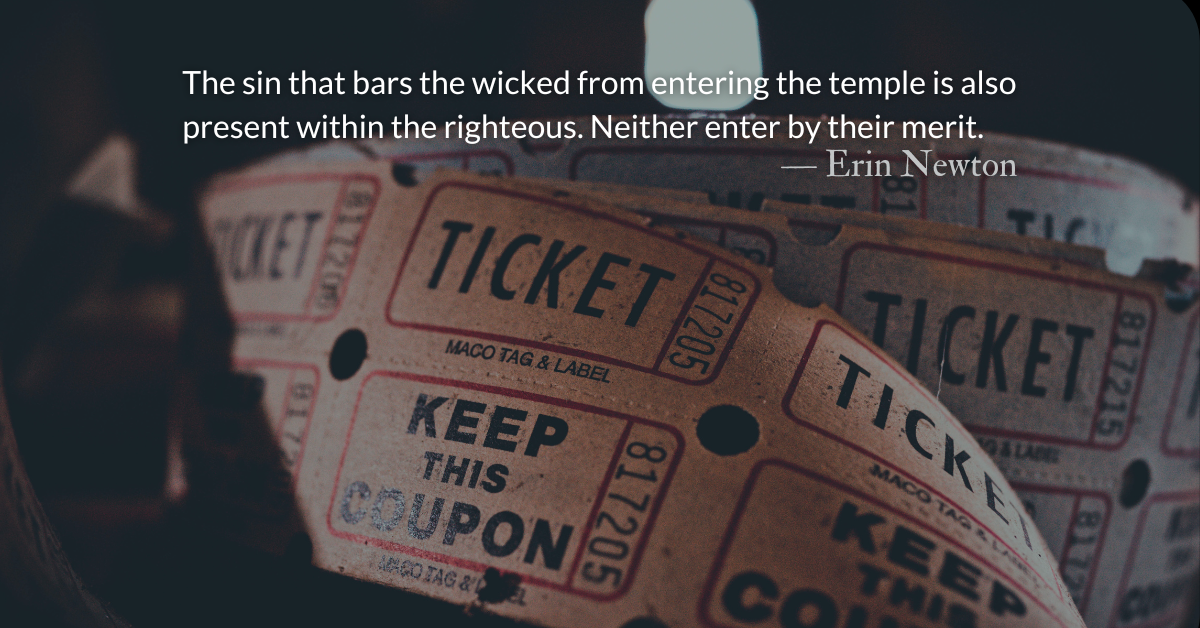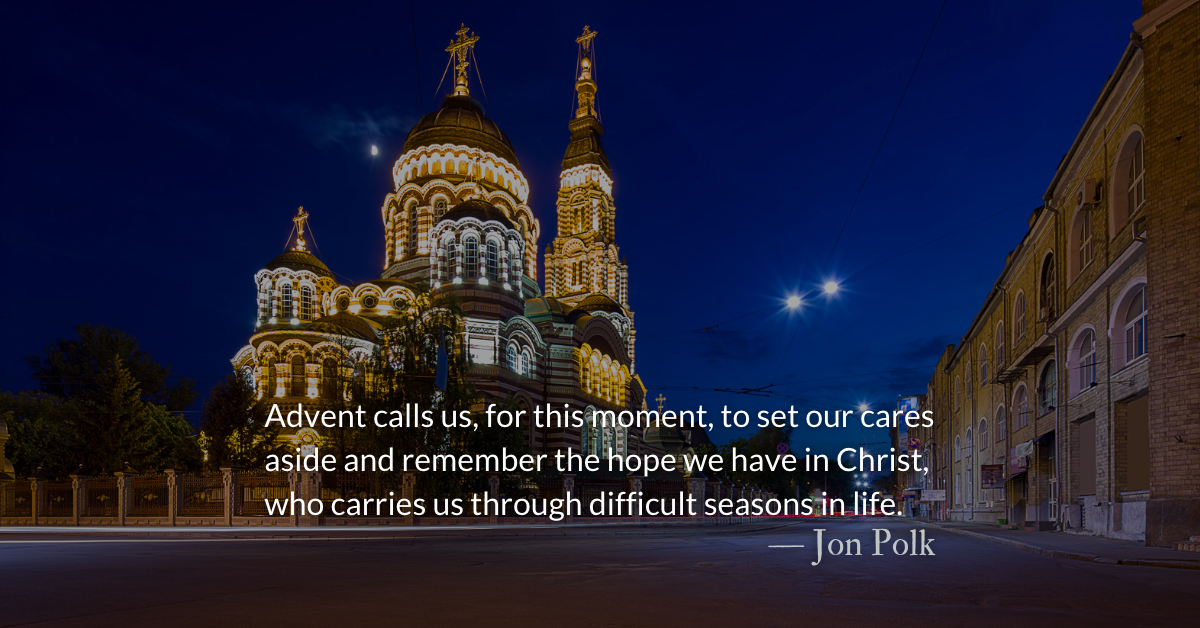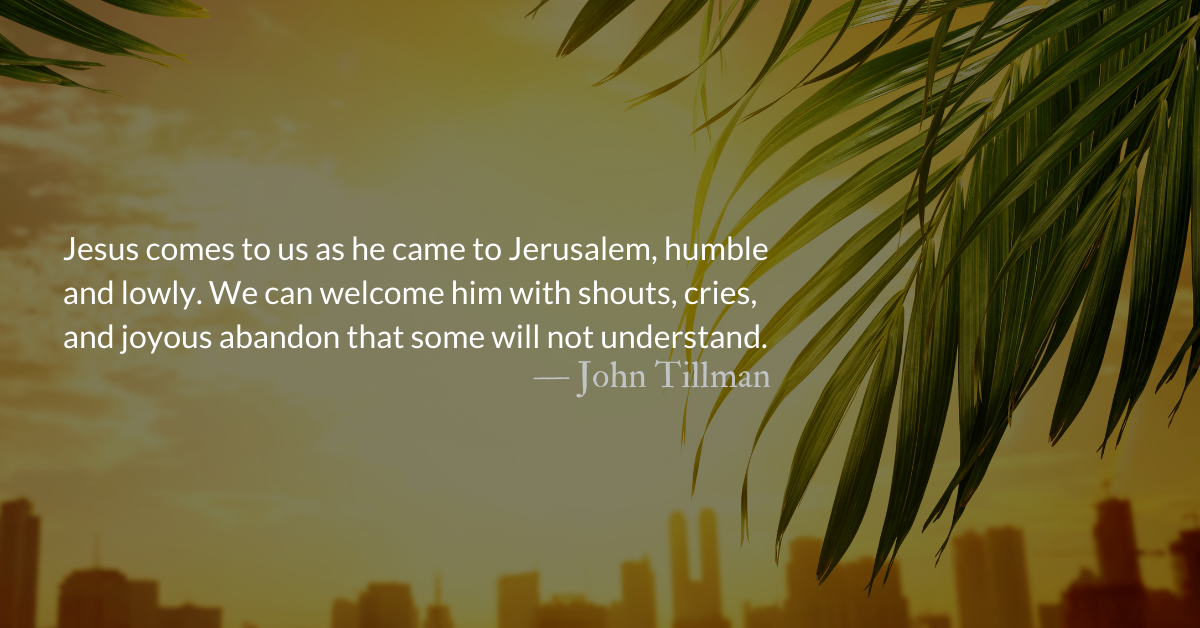Scripture Focus: Psalm 5.7
7 But I, by your great love,
can come into your house;
in reverence I bow down
toward your holy temple.
Reflection: Temple Admission
By Erin Newton
Throughout Psalms, the poet focuses on the differences between the wicked and the righteous. The wicked are arrogant, bloodthirsty, and deceitful. The righteous are humble, peaceable, and honest. The wicked are barred from the presence of the Lord. The righteous enter the temple with ease.
What is the cost of admission into the temple? Sin bars the wicked from entering. The righteous—well, the righteous are not perfect either. How is one rejected and the other accepted?
Our English translation of Psalm 5.7 adequately reflects the important word order of the Hebrew text. The verse begins with the important conjunction that signals a shift in focus— “but.” The characteristics of the wicked will now stand in contrast. But not to the psalmist!
The Hebrew reads, “But I, by your great love, I come into your house…” (The NIV translates the Hebrew nearly verbatim here.)
It is not “by the great works of the righteous” or “by the pious offerings of the righteous” or “by the comparatively less horrible deeds by this guy.” It is by God’s love. The wicked are not contrasted to the righteous in this case. The wicked stand against the plumbline of God’s character, specifically, his love.
The price of admission to God’s presence is his love. The sin that bars the wicked from entering is also present within the righteous. Neither enter by their merit.
Despite our anchored belief that salvation is by faith alone, we sometimes believe that we deserve to be accepted because we are not as bad as someone else. Opening the door to God’s presence means a series of locks with keys of righteous deeds that only need to be performed. Voila! We purchased our own tickets to heaven. (Or so we delude ourselves.)
We change the word order of the verse in our hearts. “But I can come into your house…” with a haphazard inclusion, “by your great love,” just to cover our religious bases.
When we read the psalms, we identify with the righteous sufferer. We are never the wicked; we are always the accepted. In many cases, this may be true. The psalms were preserved for the benefit of a community that struggled in faith and rejoiced in God’s victories.
But in our reading, among all the “me” and “my” statements, the valiant character is always God. It is our trust in his love that grants us entrance.
Divine Hours Prayer: The Refrain for the Morning Lessons
Blessed is he who comes in the name of the Lord; we bless you from the house of the Lord. — Psalm 118.26
– From The Divine Hours: Prayers for Summertime by Phyllis Tickle.
Today’s Readings
2 Samuel 17 (Listen 5:00)
Psalms 5-6 (Listen 2:45)
Read more about A Worn Out Welcome
When we go into the house of the Lord, is God glad we have come?
Read more about Maintaining Sacred Space
Through spiritual disciplines and practices, we maintain and carry with us sacred space.











